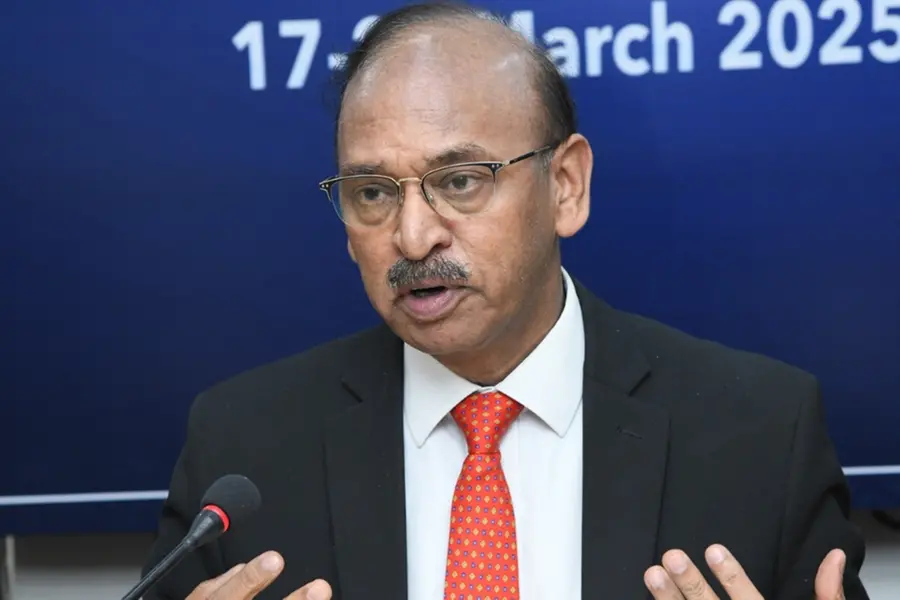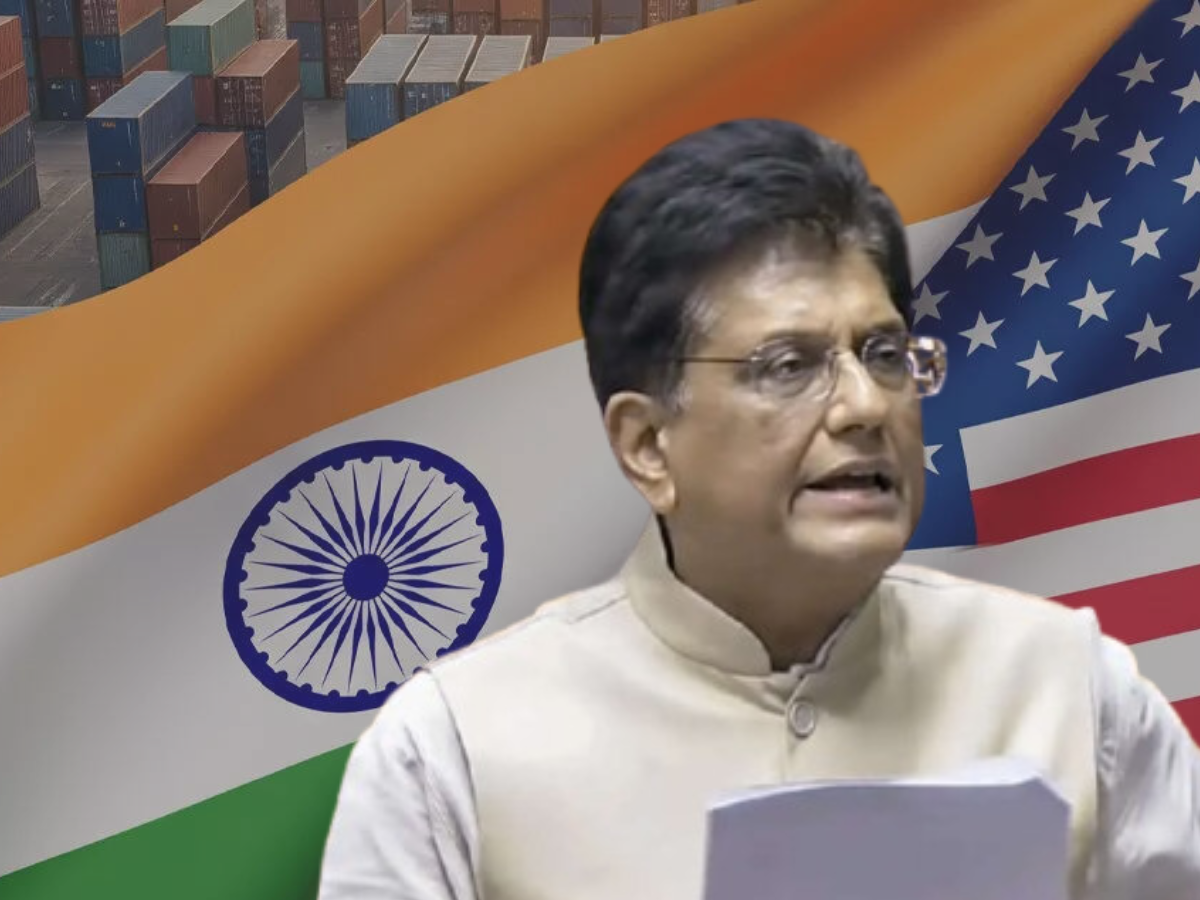New Delhi – The Centre On Trump Tariff Shock response has taken center stage as India prepares comprehensive measures to counter punitive US trade actions. Commerce Minister Piyush Goyal delivered a crucial statement in Parliament on Thursday, addressing the escalating trade tensions following President Donald Trump’s announcement of 25% reciprocal tariffs on Indian goods, effective August 1.
The Centre On Trump Tariff Shock strategy emphasizes protecting national interests while maintaining diplomatic engagement. Goyal assured both houses of Parliament that the government will take “all necessary steps” to secure India’s economic sovereignty amid mounting pressure from the Trump administration.
Parliamentary Statement Addresses Trade Crisis
During his suo motu statement, Goyal acknowledged the severity of the situation without directly referencing Trump’s inflammatory social media posts. The Centre On Trump Tariff Shock approach demonstrates measured diplomacy while preparing robust countermeasures against what many consider unjustified trade aggression.
The commerce minister revealed that the ministry is actively engaging with exporters, industry stakeholders, and trade organizations to assess the full impact of these tariff measures. This comprehensive consultation forms a crucial component of the Centre On Trump Tariff Shock response framework.
Trump’s latest social media outburst on Thursday further escalated tensions, stating he doesn’t care about India’s relationship with Russia and dismissing both economies as “dead.” Such rhetoric has strengthened India’s resolve to pursue independent foreign policy while protecting domestic interests.
Background of Escalating Trade Tensions


The Centre On Trump Tariff Shock situation stems from India’s firm stance on protecting its agriculture, dairy, and micro, small, and medium enterprises from unrestricted American imports. This principled position has drawn the ire of the Trump administration, which seeks greater market access for US products.
Also Read: Trump Executive Order On Reciprocal Tariffs: Bold 41% Import Duties Imposed
The current crisis traces back to the Trump administration’s April 2 executive order on reciprocal tariffs, which imposed additional duties ranging from 10% to 50% on various trading partners. The Centre On Trump Tariff Shock response has been carefully calibrated since this initial announcement.
Originally scheduled to take effect on April 9, the full implementation was postponed twice – first for 90 days on April 10, then extended until August 1. This delay provided crucial time for the Centre On Trump Tariff Shock strategy to mature and for bilateral negotiations to continue.
Legal Challenges and International Scrutiny
In Washington, a US appeals court has questioned the legal foundation of Trump’s tariff authority, with judges noting that emergency powers legislation doesn’t explicitly mention tariffs. This legal uncertainty adds another dimension to the Centre On Trump Tariff Shock calculations.
The court’s skepticism regarding presidential emergency powers for trade actions provides India with potential diplomatic leverage. The Centre On Trump Tariff Shock approach may benefit from these constitutional questions surrounding Trump’s trade authority.
Impact Assessment and Industry Response
Industry experts estimate that approximately 45-50% of Indian goods by value fall into exempt categories, potentially limiting the overall impact of the new tariffs. India exported goods worth $86 billion to the US in 2024-25, making this relationship crucial for both economies.
The Centre On Trump Tariff Shock analysis indicates that sectors such as electronics, energy, pharmaceutical ingredients, and precious metals remain exempt from additional duties. However, textiles, engineering goods, and processed foods face the full tariff burden.


Federation of Indian Export Organisations director general Ajay Sahai characterized the situation as temporary, expressing confidence that ongoing bilateral trade agreement negotiations will resolve these punitive measures. This optimism aligns with the Centre On Trump Tariff Shock assessment that diplomatic solutions remain viable.
Ongoing Bilateral Trade Negotiations
Despite the hostile rhetoric, negotiations for the India-US bilateral trade agreement continue as scheduled. The Centre On Trump Tariff Shock strategy maintains engagement while preparing defensive measures.
The American negotiating team’s visit to New Delhi on August 24 for the sixth round of talks remains unchanged, indicating both sides recognize the importance of continued dialogue. Since March 2025, India and the US have been working toward a fair, balanced, and mutually beneficial trade agreement.
The Centre On Trump Tariff Shock approach emphasizes that four physical negotiation rounds have already occurred in New Delhi and Washington D.C., supplemented by numerous virtual meetings. This sustained engagement demonstrates commitment to resolving trade disputes through proper channels.
Strategic Partnership Amid Tensions


US Secretary of State Marco Rubio offered a more nuanced perspective, describing India as a strategic partner while acknowledging energy purchases from Russia as a “point of irritation.” This balanced view suggests potential for de-escalation within the Centre On Trump Tariff Shock framework.
Rubio’s acknowledgment that countries cannot align “a hundred percent of the time on everything” provides diplomatic space for the Centre On Trump Tariff Shock strategy to operate effectively. His recognition of India’s energy needs demonstrates understanding of complex geopolitical realities.
Final Statement
The Centre On Trump Tariff Shock response reflects India’s determination to protect its national interests while maintaining strategic partnerships. As the situation develops, the government’s comprehensive approach combining diplomatic engagement, industry consultation, and strategic planning positions India to weather this trade storm effectively.


